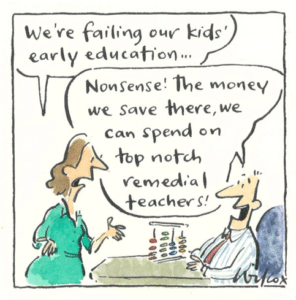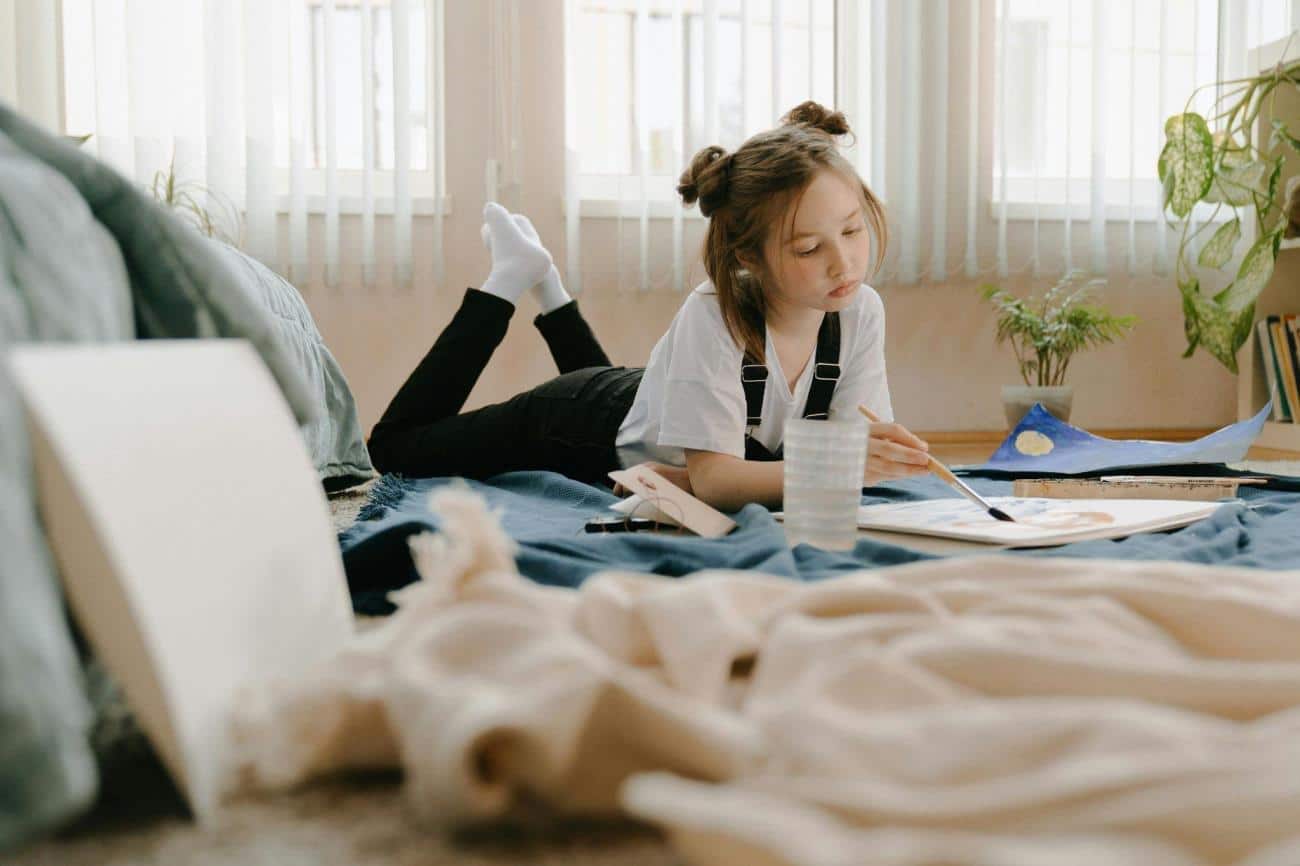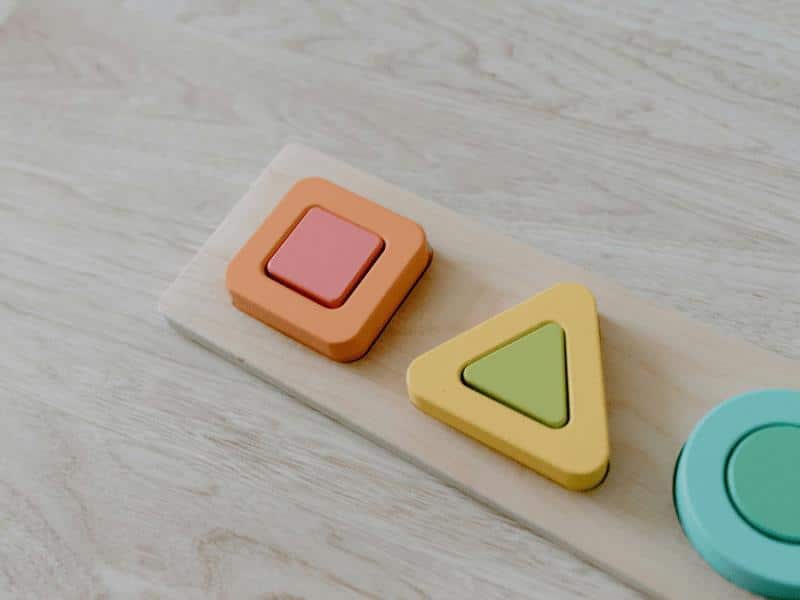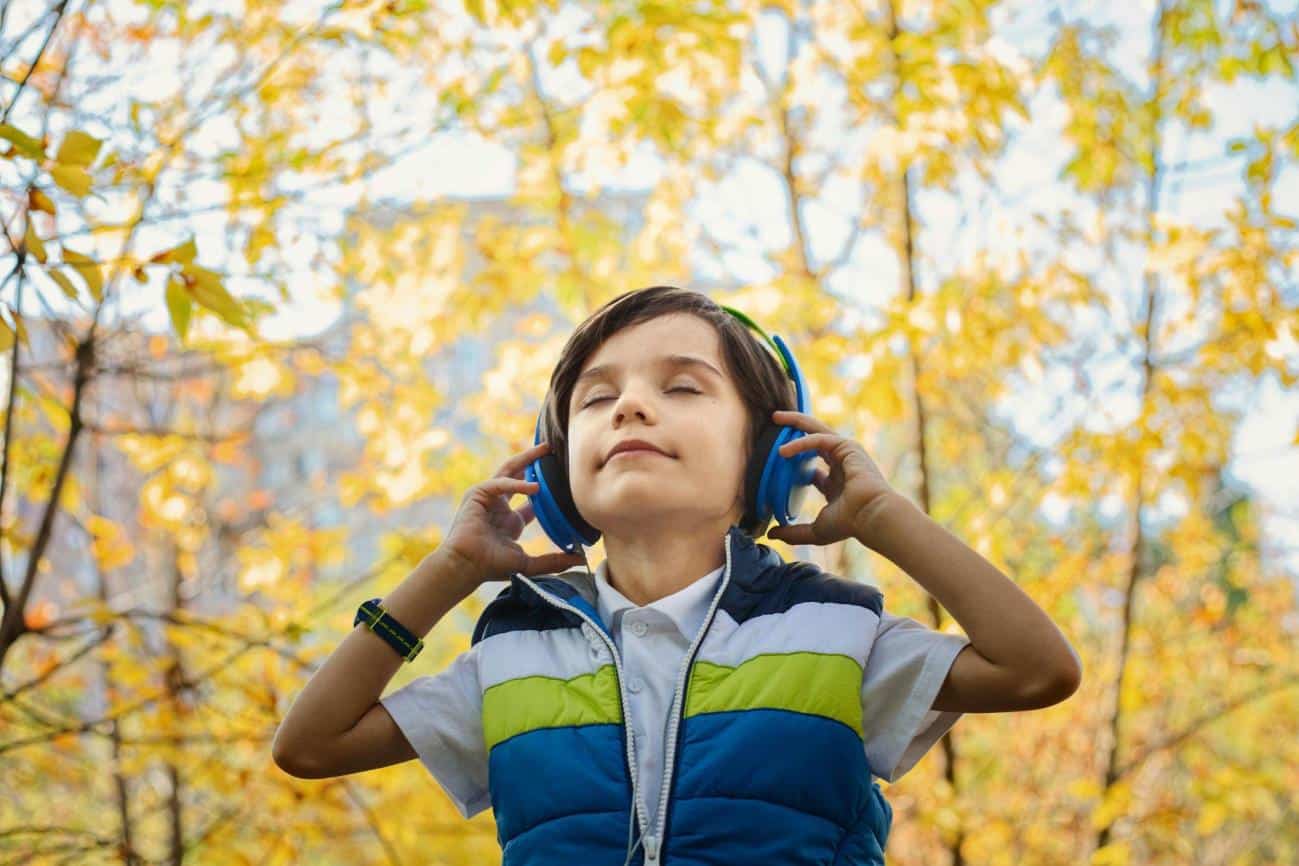
Learning Through Play – The Pressure To Play In Australia
There is a lot of controversy and confusion about how children should be experiencing their early childhood and early learning.
How a misguided definition of play is forcing Aussie kids to play catch-up… Is your child missing out on critical development opportunities?
Should we just let children play? Or should children be provided with structure and learning?
In Australia, the cultural attitude towards early learning is that play is the same as learning and that young children learn best through play. But it’s not working. Reports show that over 80% of Australian kindergartens and childcare centres fail to prepare children for school. When children start school already behind, it has a domino effect throughout the rest of their lives. So if play is the best way for children to learn, why is it not working for Australian children?
Children Require Stimulation
The problem is that when most Australians think of play, they think of free choice, open-ended play with no rules and this kind of ‘free play’ makes up a significant component of our early learning curricula. Many parents and teachers fiercely defend this component because it is what they had growing up and they feel it’s more ‘natural’ and less stressful for young children. Yet 80% of the brain’s internal structure is established from 0-3 years old and is 92% developed by the time a child turns four.
Children require a huge amount of stimulation during this period – stimulation that they just don’t get from free play alone, as confirmed by former teacher and Australian Catholic University educator, Susan Edwards. This leads to an excess of stress once children start school during an already stressful transition and can result in a permanent aversion to learning. Joseph Sparling, an honorary fellow in education at the University of Melbourne has acknowledged that waiting until the year before children start school to introduce structured learning is ‘neglect’ and that early intervention saves children from a lifetime of failure.
Many Australians will wince at the idea of introducing any amount of structured learning to children under four. However, if you have ever observed children playing you would have seen that there is structure to their play. Even in fantasy play they make up their own rules and assign roles to themselves, others and their toys. There are also end-goals in children’s play. Structured goals would include saving someone from the bad guys, completing a building, cooking a meal or healing the sick.
John Dewey, an education revolutionary, defined play as this:
Play is not to be identified with anything which the child externally does. It rather designates his mental attitude in its entirety and in its unity.
Play and Learn
Although Shichida classes are highly structured, they inspire the attitude of play in children while providing necessary stimulation in small, age-appropriate increments with great respect to young children’s minds, attention spans, emotions and personal development. Professor Makoto Shichida founded the Shichida Method of Education on the philosophy that ‘to engage the minds of children, you must first engage their hearts’, so Shichida classes incorporate fun toys, songs and simple games that teach children from six months to nine years old in a way that they don’t even know they are learning.
Unlocking Potential: Shichida’s Engaging Approach to Early Childhood Education
Shichida introduces children to useful mnemonic devices through “Silly Stories” and teaches mindfulness breathing techniques using candles, bubbles, and pinwheels. They foster creativity through imaginative play and drawing songs. Critical thinking skills are developed through mazes, puzzles, and tangrams. Shichida ensures that children explore letters and numbers in a fun and pressure-free manner, gradually building a foundation for literacy and numeracy prior to starting school. By incorporating “guessing” games into each class, Shichida acknowledges and nurtures children’s natural intuition. Intuition helps children develop trust in themselves. In a structured environment like a Shichida class, children can enjoy playful and educational activities and games. With classes lasting less than an hour, one day a week, children still have ample time for unstructured free play. Free play is valuable for brain development when combined with structured or teacher-guided play, as noted by Susan Edwards.
Proven Benefits
High-quality early education has proven benefits for individuals as well as entire societies. The majority of Europe, Asia and Scandinavia are already implementing holistic early education programs. These effective programs are based on research to give the next generation a head start in life. So why isn’t Australia doing the same?


